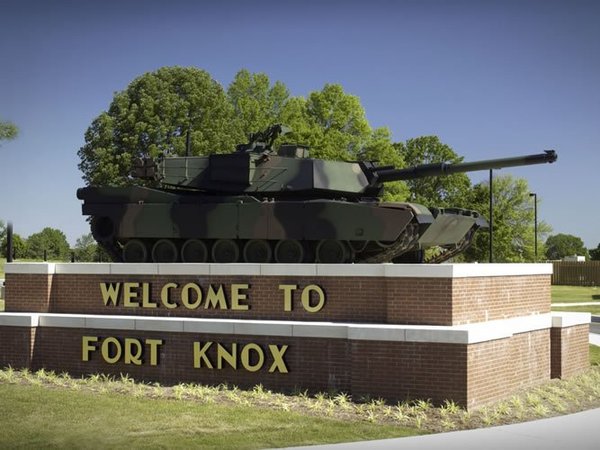Information - gold of the XXI century, or the new “Fort Knox” for data on the open spaces of Germany
The T-System company, which is a subsidiary of the IT giant Deutsche Telekome, presented a large data center in Bayer, Germany. The peculiarity of this project is that, according to the project management, all data posted on the site will be superprotected against unauthorized access to them.
After a scandalous exposure of the collection of information from the US communications structure, the NSA service, disclosed by its employee Edward Snowden, the problem of the location and safe movement of information faced very many customers of data centers.

The storm of indignation that arose after Snowden's revelations touched many countries of the world, Germany was no exception. After the stolen documents leaked to the press, the public received direct evidence that the NSA officers were engaged in the purposeful collection of personal data of respectable citizens. Even German Chancellor Angela Merkel did not pass this fate, her phone, it turned out, had already been tapped for a long time.

The result of undermined trust in providers that deploy their facilities in the United States was their real financial loss. For these reasons, at the end of June, an authorized member of the German government announced that further cooperation with Verizon would be terminated on the basis of suspicions of assistance to the US special services.
At such a difficult moment for competitors, the German market leader in communications Deutsche Telekom and its subsidiary T-System decided to take full advantage of the opportunities they had to promote their services, which they openly stated.
“We invest in the economy of Germany as a country that is one of the world’s centers for IT business and where information security standards are highly valued,” said Tim Hötges, Director General of Deutsche Telecom. “Our customers now have the opportunity to place their data in a data center comparable to Fort Knox, which is under the control of a provider that you can fully trust.”

Tim Hötges's assurances are certainly impressive, but in this context it will be useful to recall the report of the German publication Der Spiegel for August 2013, which makes this whole story not as cloudless as it might seem at first glance. After analyzing part of the materials declassified by Snowden by the journal’s journalists, it became apparent that German foreign intelligence BND actively collaborated with U.S. intelligence, transmitting metadata collected from German telecommunication networks to it.
In addition to the new IT site built in Bayer, T-Systems built another, full analogue of the first in neighboring Magdeburg, thereby obtaining two twin data centers. According to the project, two data centers will work as a single structure, duplicating the data placed in two places at the same time, which, obviously, will make this data more secure and accessible to the end user.

At the moment, the two data centers together have all the capabilities to host about 30,000 servers, the company said in a press release. Capacities of data centers are located in buildings with a total area of 5500 sq. M. At the same time, according to the initial project, the possibility of expanding the area of the complexes by more than 7 times, to an impressive 40,000 sq. M.
Also, the advanced German provider in the pursuit of capacity did not forget about the environmental component. The complex in Bayer has received a "Golden Certificate" from the American Environmental Council, which conducts an analysis of building projects for "environmental friendliness".
After a scandalous exposure of the collection of information from the US communications structure, the NSA service, disclosed by its employee Edward Snowden, the problem of the location and safe movement of information faced very many customers of data centers.

The storm of indignation that arose after Snowden's revelations touched many countries of the world, Germany was no exception. After the stolen documents leaked to the press, the public received direct evidence that the NSA officers were engaged in the purposeful collection of personal data of respectable citizens. Even German Chancellor Angela Merkel did not pass this fate, her phone, it turned out, had already been tapped for a long time.

Damage done
The result of undermined trust in providers that deploy their facilities in the United States was their real financial loss. For these reasons, at the end of June, an authorized member of the German government announced that further cooperation with Verizon would be terminated on the basis of suspicions of assistance to the US special services.
At such a difficult moment for competitors, the German market leader in communications Deutsche Telekom and its subsidiary T-System decided to take full advantage of the opportunities they had to promote their services, which they openly stated.
“We invest in the economy of Germany as a country that is one of the world’s centers for IT business and where information security standards are highly valued,” said Tim Hötges, Director General of Deutsche Telecom. “Our customers now have the opportunity to place their data in a data center comparable to Fort Knox, which is under the control of a provider that you can fully trust.”

Tim Hötges's assurances are certainly impressive, but in this context it will be useful to recall the report of the German publication Der Spiegel for August 2013, which makes this whole story not as cloudless as it might seem at first glance. After analyzing part of the materials declassified by Snowden by the journal’s journalists, it became apparent that German foreign intelligence BND actively collaborated with U.S. intelligence, transmitting metadata collected from German telecommunication networks to it.
Data centers are twins, completely duplicating data
In addition to the new IT site built in Bayer, T-Systems built another, full analogue of the first in neighboring Magdeburg, thereby obtaining two twin data centers. According to the project, two data centers will work as a single structure, duplicating the data placed in two places at the same time, which, obviously, will make this data more secure and accessible to the end user.

At the moment, the two data centers together have all the capabilities to host about 30,000 servers, the company said in a press release. Capacities of data centers are located in buildings with a total area of 5500 sq. M. At the same time, according to the initial project, the possibility of expanding the area of the complexes by more than 7 times, to an impressive 40,000 sq. M.
Also, the advanced German provider in the pursuit of capacity did not forget about the environmental component. The complex in Bayer has received a "Golden Certificate" from the American Environmental Council, which conducts an analysis of building projects for "environmental friendliness".
